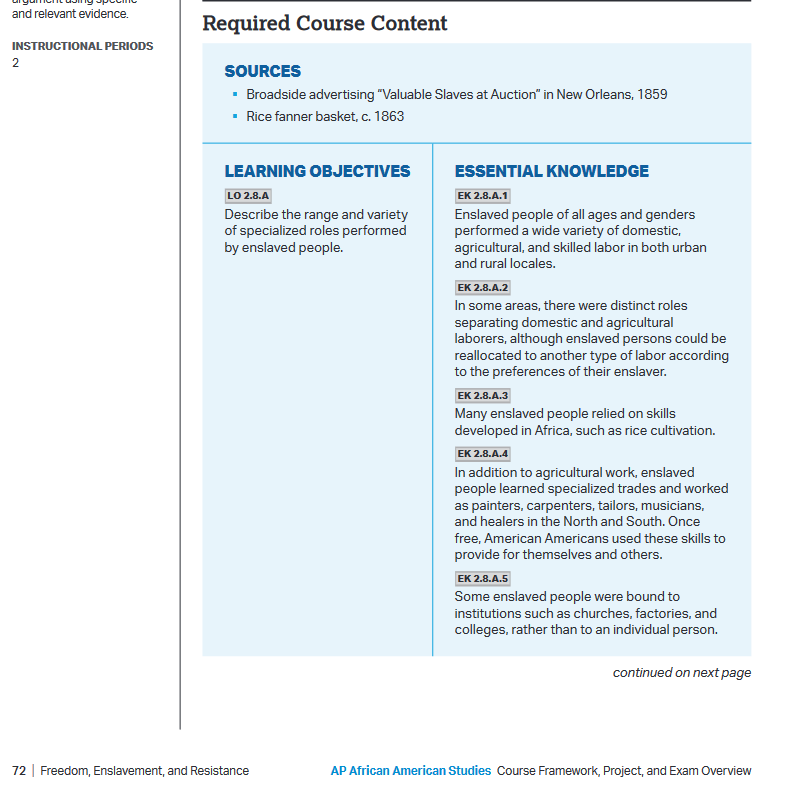On July 24, 2023 PolitiFact published a supposed fact check of Vice President Kamala Harris. Harris claimed “(T)hey (Florida) decided middle school students will be taught that enslaved people benefitted from slavery.”
PolitiFact rated Harris’ claim “Mostly True” on its trademarked “Truth-O-Meter.”
Doubtless DEI directors and Democrats will largely cheer the ruling. We’ll explain how PolitiFact botched the ruling in detail, so that even people inclined to buy the ruling based on confirmation bias and the like can see that it hardly qualifies as a fact check.
The Standards, and What Harris Said About Them
Here’s how PolitiFact presented Harris’ claim:
Vice President Kamala Harris drew wide attention when she called a section about slavery in Florida’s new middle school social studies standards an “insult.”
“They push forward revisionist history,” Harris said July 20 at a national convention of Delta Sigma Theta Sorority Inc. “Just yesterday, in the state of Florida, they decided middle school students will be taught that enslaved people benefited from slavery. They insult us in an attempt to gaslight us, and we will not stand for it — we who share a collective experience in knowing we must honor history and our duty in the context of legacy.”
Here’s how PolitiFact informed readers about the relevant education standard:
The part of Florida’s new standards that Harris was citing is for grades six through eight. It says:
“Examine the various duties and trades performed by slaves (e.g., agricultural work, painting, carpentry, tailoring, domestic service, blacksmithing, transportation).”
The controversial part is in this “benchmark clarification” about slave labor: “Instruction includes how slaves developed skills which, in some instances, could be applied for their personal benefit.
Harris pulled a fast one, assuming she knew enough to know what she was doing. Harris said the standards teach that slaves benefitted from slavery. The standards say slaves in some cases developed skills that could benefit them personally.
So, What’s the Difference?
Harris laid a logical booby trap based on ambiguity, and also, if we’re charitable, committed a separate fallacy of equivocation. If we’re not charitable, Harris committed a straw man fallacy and not an equivocation fallacy. Neither error was particularly hard to detect, which should rightly embarrass the PolitiFact team responsible for the story. The fact check communicates no awareness of either error, except as it quotes defenders of Florida’s Black history standards.
Equivocation/Straw Man
“Slavery” and “skills learned while enslaved” are not the same thing. Shouldn’t that be obvious? But Harris goes there, claiming the standards teach that slavery itself was a benefit to slaves. Learning carpentry may benefit the one learning carpentry, whether slave or free. The same goes for sewing and any number of skills. The standard obviously counts as true, and it does not say that slaves benefitted from slavery itself.
What Harris said was false.
The Fallacy of Ambiguity
Fallacies of ambiguity mislead by saying something that may be taken more than one way. The Florida standards said “in some instances” slaves benefitted from skills they learned as slaves. Harris omitted the limiting qualifier, sticking with just “slaves.” By itself, “slaves” could mean some or all. The ambiguity helps misrepresent what the standards say, increasing the chances that Harris’ audience would accept a false notion about the standards. Her phrasing implies the standards say slaves generally benefitted from slavery. Of course the standards say no such thing.
How could anybody find what Harris said “Mostly True”? With Harris falsehood clearly exposed, we will show that PolitiFact has no case at all in its “fact check.”
PolitiFact’s Evidence
PolitiFact said “multiple experts on Black history and racism in the United States said the language used in Florida’s standards about enslaved people learning skills is misleading.”
May we ask how it was misleading?
PolitiFact immediately cited Marvin Dunn, psychology professor at Florida International University. Dunn said “Most enslaved people had no special skills at all that benefitted them following their enslavement.”
So what? The standards said in some instances slaves acquired skills that could benefit them personally, not in all or most instances. PolitiFact quoted more from Dunn, but the rest of his comment was predicated on the notion that the standards said slavery itself benefitted slaves. So, the Dunn citation counts as a nothingburger with cheese.
Next, PolitiFact cited Katheryn Russell-Brown, mostly through paraphrase or summary. PolitiFact said Russell-Brown found the standard in question lacks context, such as the whitewashing (my term!) of white people. The paraphrase includes something about mention of the Ku Klux Klan in the standards, which seems odd given the lack of attention on bad things whites did. In any case, Russell-Brown offered no evidence of the misleading nature of the claim in question.
PolitiFact’s next expert, Bruce Levine (emeritus professor of history at the University of Illinois) invoked Nazism. No kidding: “Very simply, can you imagine saying this about ‘skills’ developed in Nazi forced-labor camps?” Levine’s using a fallacious appeal to outrage. If it’s true that slave laborers in Nazi camps learned skills that could benefit them personally (I don’t know what those would be), then what’s wrong with saying it?
Did a PolitiFact journalist think of asking Levine about that, or why he was using the appeal to outrage instead of offering evidence of the misleading nature of Florida’s Black history standards?
Next up was Carol Anderson. Take it away, PolitiFact:
Carol Anderson, an African American studies professor at Emory University, said the standards represent an “old argument that slavery was a benevolent institution that benefited the enslaved.”
Anderson’s characterization distorts the facts at best. If the standards presented slavery as a benefit to the enslaved, then why not say that all or most slaves acquired skills beneficial to them personally? Saying that slaves acquired those benefits “in some cases” seriously downplays the benefits if that’s the angle Florida was taking.
Anderson’s next comment in the article makes us want to see her in the same room for a discussion with Dunn, who said “For almost all their skill was picking cotton.” According to Anderson, it was the whites who took advantage of skills the slaves already had for cultivating tobacco, sugar and rice. She did not mention cotton. Was PolitiFact not interested in addressing the discrepancy?
Anderson said Florida’s standard “has the racist underpinning of treating Africans as if they had no skills prior to being kidnapped from their homelands and trafficked to America.” Apparently it’s inconceivable to Anderson that some of the enslaved Africans might have acquired new skills during their enslavement that could provide them a personal benefit. But Anderson’s incredulity serves as a poor argument against the truth stated in the standards, and offers no real reason why they should count as misleading.
Ashley Rogers Berner served as caboose:
Added Ashley Rogers Berner, director of the Johns Hopkins Institute for Education Policy: “It is not common for state standards to include language about the ‘benefit’ to enslaved persons of learning trades.”
If it’s not common, then it’s misleading to mention it? Did the standards mention “trades” or was that Rogers Berner’s invention? We’d like to see Rogers Berner in a room with Anderson working out whether the “racist underpinning” is not common in state standards.
Again, it’s possible for anyone, even a slave, to learn skills that may offer one a personal benefit. And even if one slave learned from another how to successfully cultivate tobacco or rice, why would that not count as a slave learning a skill that might offer a personal benefit?
PolitiFact’s Lying Conclusion
PolitiFact approves Harris’ untruth:
Harris said Florida “decided middle school students will be taught that enslaved people benefited from slavery.”
That is not the only lesson Florida students would be taught under the standards that also include many other aspects of Black history and slavery. But the one Harris cited is included, and has drawn significant criticism.
Reminder: The standards did not say enslaved people benefitted from slavery. PolitiFact misses the obvious, even after quoting defenders of the standards who pointed it out.
We plan to file a correction request with PolitiFact.
Update July 27, 2023
Ron DeSantis’ press secretary Jeremy Redfern pointed out on Twitter that language similar to Florida’s occurs in (national) Advanced Placement course descriptions for Black history:

So, when PolitiFact reported Ashley Rogers Berner’s statement that states did not commonly mention a “benefit” from skills acquired while enslaved, was PolitiFact hiding the ball on national AP standards teaching that slaves learned skills they were able to use to “provide for themselves and others”?
Could one legitimately consider it a “benefit” to be able to provide for one’s self along with others?
Update Dec. 25, 2023: While updating the page to establish a featured image (wonky editing window has made that often difficult) we noticed we had neglected to include a link to the flawed PolitiFact fact check. This update corrects that oversight.


